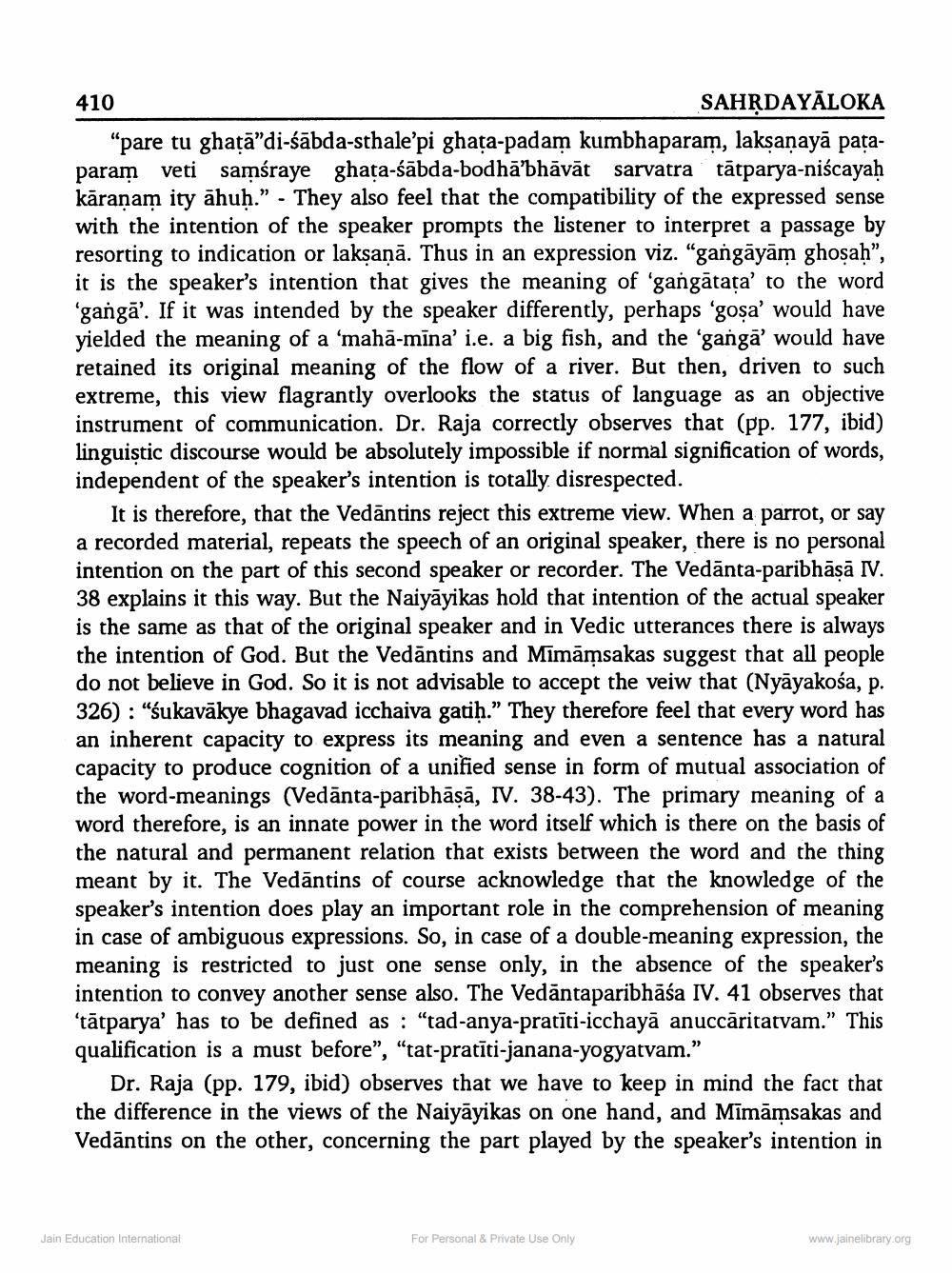________________
410
SAHRDAYĀLOKA "pare tu ghatā"di-śābda-sthale’pi ghața-padam kumbhaparam, laksanayā pataparam veti samśraye ghata-śābda-bodhābhāvāt sarvatra tātparya-niscayah kāraṇam ity āhuḥ.” - They also feel that the compatibility of the expressed sense with the intention of the speaker prompts the listener to interpret a passage by resorting to indication or laksanā. Thus in an expression viz. "gangāyām ghosah”, it is the speaker's intention that gives the meaning of 'gangātaţa’ to the word
was intended by the speaker differently, perhaps 'gosa' would have yielded the meaning of a 'mahā-mīna' i.e. a big fish, and the 'gangā' would have retained its original meaning of the flow of a river. But then, driven to such extreme, this view flagrantly overlooks the status of language as an objective instrument of communication. Dr. Raja correctly observes that (pp. 177, ibid) linguistic discourse would be absolutely impossible if normal signification of words, independent of the speaker's intention is totally disrespected.
It is therefore, that the Vedāntins reject this extreme view. When a parrot, or say a recorded material, repeats the speech of an original speaker, there is no personal intention on the part of this second speaker or recorder. The Vedānta-paribhāsa IV 38 explains it this way. But the Naiyāyikas hold that intention of the actual speaker is the same as that of the original speaker and in Vedic utterances there is always the intention of God. But the Vedāntins and Mimāmsakas suggest that all people do not believe in God. So it is not advisable to accept the veiw that (Nyāyakośa, p. 326) : "śukavākye bhagavad icchaiva gatih." They therefore feel that every word has an inherent capacity to express its meaning and even a sentence has a natural capacity to produce cognition of a unified sense in form of mutual association of the word-meanings (Vedānta-paribhāṣā, IV. 38-43). The primary meaning of a word therefore, is an innate power in the word itself which is there on the basis of the natural and permanent relation that exists between the word and the thing meant by it. The Vedāntins of course acknowledge that the knowledge of the speaker's intention does play an important role in the comprehension of meaning in case of ambiguous expressions. So, in case of a double-meaning expression, the meaning is restricted to just one sense only, in the absence of the speaker's intention to convey another sense also. The Vedāntaparibhāśa IV. 41 observes that 'tātparya' has to be defined as : "tad-anya-pratīti-icchayā anuccăritatvam." This qualification is a must before”, “tat-pratīti-janana-yogyatvam.”
Dr. Raja (pp. 179, ibid) observes that we have to keep in mind the fact that the difference in the views of the Naiyāyikas on one hand, and Mimāmsakas and Vedāntins on the other, concerning the part played by the speaker's intention in
Jain Education International
For Personal & Private Use Only
www.jainelibrary.org




